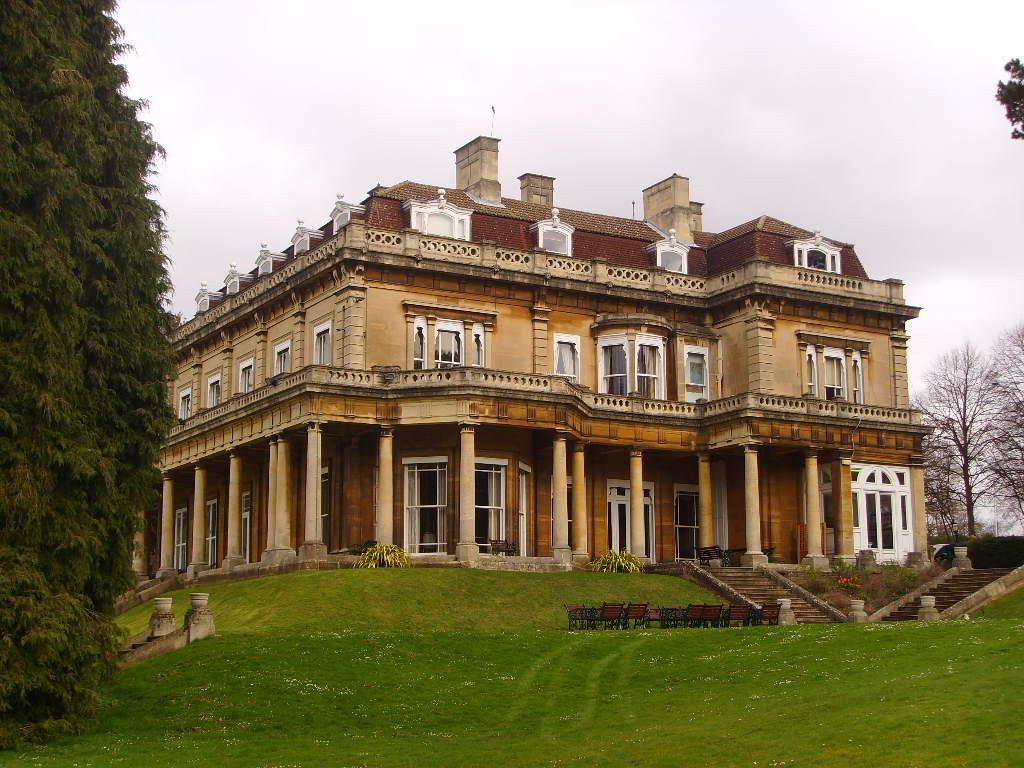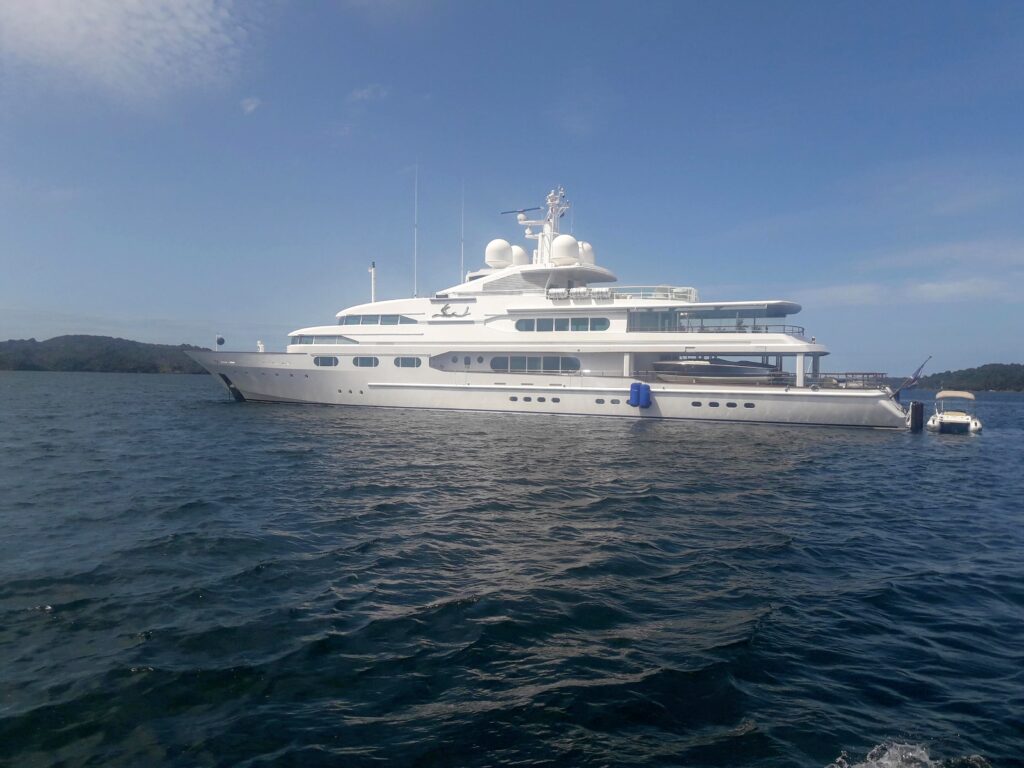
Headington Hill Hall, credit Wikipedia
Maxwell, in the Flesh
Fall: the Mystery of Robert Maxwell, John Preston, Viking/Penguin Books, 2021, 323 pp, hb, £18.99, reviewed by Leslie Jones
In her memoir A Mind of My Own, Betty Maxwell characterised her late husband as “the Greek tragic hero”, the author of his own downfall. Unquestionably gifted and intelligent, Robert Maxwell spoke nine languages and read a book every day, either a Pelican or a Penguin. He could absorb information “at a phenomenal rate”.
On Desert Island Discs, in July 1987, Maxwell described himself as “a very happy person” and claimed that his childhood “has had no effect on me”. He acknowledged, however, (somewhat inconsistently) that as a child he was always cold and hungry, arguably the root of his subsequent gluttony. Ján Hoch, aka Robert Maxwell, was born in Solotvino, Ruthenia (Czechoslovakia), on June 10th 1923. His father, an orthodox Jew, scraped a living selling animal skins. The parents and their nine children lived in a two room wooden shack with an earth floor. There was no running water and only a pit latrine. Maxwell, not surprisingly, rarely spoke of his childhood.
Freud, referring to his own upbringing, emphasised the significance of his mother’s unstinting love and attention. Maxwell’s mother, likewise, doted on her first born son but his father regularly beat him. The boy evidently adored his mother. She perished in Auschwitz along with Maxwell’s father, two sisters and grandfather. Betty believed that he felt responsible for the destruction of his family. Instead of joining the Czech resistance, he should have stayed at home and rescued them. He subsequently tried to replace the family that he had lost with one of his own. He and Betty, whom he married in 1945, eventually had nine children. Like his father before him, he beat them if they did badly at school. His children were all terrified of his temper and intimidated by his high expectations.
Preston contends that behind Maxwell’s “brash exterior” lay “a vast lake of insecurities”. Work was a way to “escape his own demons”. Loss is a recurring theme in Maxwell’s life. One child, Karine, who had leukaemia, died in his arms. Another, Michael, was brain damaged in a car crash in 1961. He never recovered consciousness and died in 1968. In 1955, Maxwell was diagnosed with terminal brain cancer but the tumour turned out to be benign.
“Who am I?” Uncertainty as to his identity was key to Maxwell’s personality. He only acknowledged his Jewish heritage belatedly, in the 1980’s. Elected MP for Buckingham in 1964, he denied that he was Jewish when congratulated by the Jewish Chronicle. The author recalls Maxwell’s first visit to Israel in 1984, on property developer Gerald Ronson’s private plane. As they neared Tel Aviv, Ronson noticed that Maxwell was crying. “I should have come here years ago”, he repeatedly remarked. When he died, he was given what amounted to a state funeral in Israel.
Maxwell, in effect, re-invented himself as a British gentleman. Names therefore assumed significance. His aliases included Ivan du Maurier and Leslie Jones (no relation). At Betty’s 70th birthday party at the Dorchester, in 1991, the meat dish was accompanied by Légumes du Maurier. In 1944, now a second lieutenant in the Queen’s Royal regiment, a decorated war hero no less, he had finally settled on the name Robert Maxwell as it sounded suitably posh. Maxwell also imitated Churchill’s upper class accent and his “rumbling cadences”. He acquired a dog, Barry, from the Berlin kennel that had bred Hitler’s Blondi, to give him gravitas. In due course, he rented Headington Hill Hall, an Italianate mansion, from Oxford City, calling it “the best council house in the country”. But the author notes that the books on the shelves were not real.
A significant episode in Maxwell’s vertiginous ascent to wealth and power was the founding of Pergamon Press, in 1950. In 1946, when Maxwell was working for military intelligence in Berlin, he was put in charge of the press section of the Public Relations and Information Services Control. On meeting Ferdinand Springer, the head of Springer-Verlag, hitherto the world’s largest publisher of scientific books, Maxwell resolved to set up a similar company in Britain where there was no tradition of academic publishing. Astutely, he had identified a gap in the market. He persuaded Springer to grant him worldwide distribution rights to all of Springer-Verlag’s books and journals. It seems that MI6 stumped up the cash that enabled Maxwell to import a trainload of this material from Germany. The author concludes that Maxwell “effectively invented modern scientific publishing in Britain”. Pergamon was the basis of Maxwell’s fortune, the lynchpin of his business empire. He sold the company to Elsevier in 1991 for £440,000,000.
Preston does not gloss over Maxwell’s ruthless, amoral side. According to the recent Sky documentary Ghislaine Maxwell: Epstein’s Shadow, his daughter and favourite child doubled down on these characteristics. When the Mirror started a spot-the-ball-competition, Maxwell ensured that no-one could win the million pound prize. The infamous raid on the Mirror Group pension funds, in which £350,000,000 went missing, was part of a recurring pattern whereby Maxwell asset stripped one company to prop up another. The Sun once perceptively but cruelly called him “the richest peasant in the world”. Like Tony Montana, in the film Scarface, he was the outsider who arrives with nothing, pulls himself up by his own bootstraps but then dies alone and friendless. He trusted no-one and all of his offices were bugged.
John Preston’s biography of Robert Maxwell is timely, given the imminent trial of his daughter. It is replete with memorable anecdotes and revealing details about this larger than life character, such as his use of towels in place of toilet paper.
Postscript
Sometime in the 1980’s, my late father Stanley Jones was working on the news desk of the Sunday Mirror. He received a call from the proprietor. “I know that voice”, Maxwell boomed. When Maxwell was an MP, they both attended the annual Labour Party conference and had become friends. Both were self-made men who despised the British class system. Both were fellow travellers. (In one of his Leaders of the World series, Maxwell praised President Ceausęscu’s “constant tireless activity for the good of the country”). When Maxwell acquired the Mirror Group, however, friendship with my father, an NUJ stalwart and now his employee, became impossible.

Dancing Hare, formerly known as Lady Ghislaine, credit Wikipedia











Not much of a “gentleman” – e.g. his urinary habits.
How (and why) did he die? Was Gordon Thomas reliable?
Did any pension funds really go to Israeli defence installations?